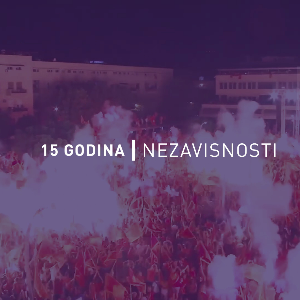02. 09. 2020. 22:30 >> 14:57 0
The Qualifications Framework of the Republic of Serbia is linked to the European Qualifications Framework
As part of the process of joining the European Union and as one of the goals in the national strategic documents, at the 52nd meeting of the Advisory Group on the European Qualifications Framework held on 4 and 5 February 2020 in Brussels, the Report on Linking the National Qualifications Framework of the Republic of Serbia was adopted. NOCS) with the European Qualifications Framework (EQF).
The report has been prepared in accordance with the criteria and procedures set by the EQF Advisory Group, and is the result of numerous expert-consultative meetings with national and EU partners, including Mile Dzelalija from the Republic of Croatia and Eduard Staudecker from the Republic of Austria.
The delegation of the Republic of Serbia at the 52nd meeting of the Advisory Group for the European Qualifications Framework consisted of State Secretary Anamarija Viček and Dr. Vesna Fabian from the Ministry of Education, Science and Technological Development, as well as national experts Tatijana Glišić Milutinović from the Qualifications Agency, prof. Dr. Siniša Đurašević and Vladimir Bojković.
The European Qualifications Framework was created for several reasons. While its primary purpose is to assist citizens in learning and career development, this framework also supports other actors in education, training, and employment to improve policies and practices.
As a comprehensive frame of reference, the EQF allows employers to better assess qualifications from other countries, to better understand the level of qualifications of all candidates, to compare their qualifications with national qualifications to better understand the relevance of these qualifications. With the help of the EQF, employers can see Europe as a single area of qualification. This reduces barriers to labor mobility, supports better use of existing knowledge, skills and competences, and better matching supply and demand in the labor market. When it comes to students and individuals who want to learn, the European Qualifications Framework provides them with an easily accessible overview of qualifications and how to acquire them. Connecting NOKS with EOK implies combat challenges in the coming period. Special activities will be undertaken so that the documents on qualifications acquired by individuals, in addition to information on the level of NOKS, also contain information on the level of EQF. Also, the European levels will be clearly indicated in the Qualifications Base, ie the NOCS Register, which is currently being established in order to make the qualifications more transparent and comparable.
The European Qualifications Framework was created for several reasons. While its primary purpose is to assist citizens in learning and career development, this framework also supports other actors in education, training, and employment to improve policies and practices.
As part of the process of joining the European Union and as one of the goals in the national strategic documents, at the 52nd meeting of the Advisory Group on the European Qualifications Framework held on 4 and 5 February 2020 in Brussels, the Report on Linking the National Qualifications Framework of the Republic of Serbia was adopted. NOKS) with the European Qualifications Framework (EQF), including an additional report on the self-assessment of NOKS in the field of higher education in relation to the Qualifications Framework in the European Higher Education Area (OK-EPVO).
The delegation of the Republic of Serbia at the 52nd meeting of the Advisory Group for the European Qualifications Framework consisted of State Secretary Anamarija Vicek and Dr. Vesna Fabian from the Ministry of Education, Science and Technological Development as well as national experts Tatijana Glisic Milutinovic from the Qualifications Agency, prof. Dr. Siniša Đurašević and Vladimir Bojković. With the adoption of the Report on the connection of NOKS with the EQF, the qualifications framework of the Republic of Serbia is linked to the European Qualifications Framework, which means that a clear and transparent link is established between the eight levels of qualifications of the Republic of Serbia and the eight qualifications levels of the European Qualifications Framework.
As part of the process of joining the European Union and as one of the goals in the national strategic documents, at the 52nd meeting of the Advisory Group on the European Qualifications Framework held on 4 and 5 February 2020 in Brussels, the Report on Linking the National Qualifications Framework of the Republic of Serbia was adopted. NOKS) with the European Qualifications Framework (EQF), including an additional report on the self-assessment of NOKS in the field of higher education in relation to the Qualifications Framework in the European Higher Education Area (OK-EPVO):
The European Qualifications Framework was created for several reasons. Although its primary purpose is to assist citizens in learning and career development, this framework also supports other actors in education, training and employment to improve policies and practices. The European Qualifications Framework was created for several reasons. While its primary purpose is to assist citizens in learning and career development, this framework also supports other actors in education, training, and employment to improve policies and practices. As a comprehensive reference framework, the EQF enables employers to better assess qualifications from other countries, to better understand the level of qualifications of all candidates, to compare their qualifications with national qualifications, to better understand the relevance of these qualifications. With the help of the EQF, employers can see Europe as a single area of qualification. This reduces barriers to labor mobility, supports better use of existing knowledge, skills and competences and better matches supply and demand in the labor market.









